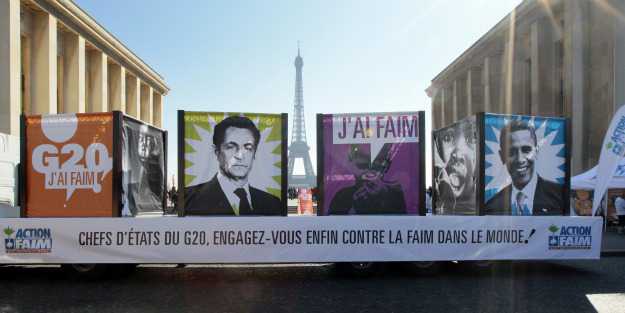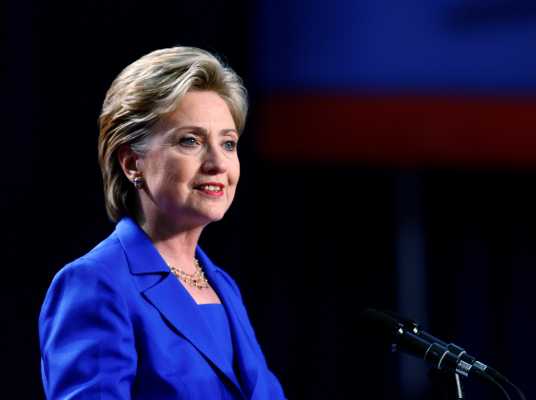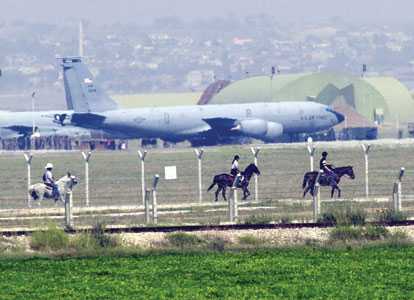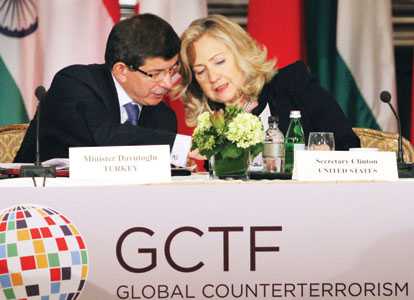By Judson Berger
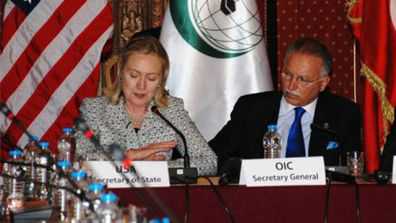
- Department of State
July 15, 2011: Shown here are Secretary of State Hillary Clinton and OIC Secretary General Ekmeleddin Ihsanoglu at a meeting in Istanbul.
A looming meeting with Islamic leaders hosted by the State Department has religious scholars and advocacy groups warning that the United States may “play into” the push by some Islamic nations to create new laws to stifle religious criticism and debate.
The meeting on religious tolerance, which is scheduled for mid-December, would involve representatives of the Organization of Islamic Cooperation — a coalition of 56 nations which more or less represents the Muslim world.
Critics describe the get-together — the first in a series — as a Trojan horse for the long-running OIC push for restrictions on speech. They note the track record of nations that want the dialogue, including Egypt, where recent military action against Coptic Christians raised grave concerns about intolerance against religious minorities.
Secretary of State Hillary Clinton originally announced the meeting this past July in Turkey, where she co-chaired a talk on religious tolerance with the OIC. The event was billed as a way to foster “respect and empathy and tolerance” among nations. Delegates from up to 30 countries, as well as groups like the European Union, are also invited.
A State Department official told FoxNews.com this week that the meeting is meant to combat intolerance while being “fully consistent with freedom of expression.”
A key worry is that the meeting could become a platform for Islamic governments to push for hate-speech laws which, in their most virulent and fundamentalist form, criminalize what they perceive as blasphemy.
While Clinton has drawn a line in the sand, saying nations should not “criminalize speech,” the upcoming meeting is seen by some as a misstep on a very sensitive issue.
“It’s just an astonishingly bad decision,” said Nina Shea, who sits on the U.S. Commission on International Religious Freedom and serves as director of the Hudson Institute’s Center for Religious Freedom.
Shea, who joined a group of scholars specializing in religious defamation for an event last week on Capitol Hill hosted by The Federalist Society, warned that the United States is virtually alone among western nations in not having hate-speech laws. She said the Obama administration doesn’t need to delve deeper into religious speech issues with OIC nations, considering their history.
Shea said she doesn’t yet fear the possibility that hate-speech laws are coming to the U.S. any time soon, “but I am concerned the culture is changing on this.”
Jacob Mchangama, director of legal affairs for Denmark’s Center for Political Studies, noted that the U.S. has resisted following Europe with hate-speech laws, but the Obama administration may be willing to “relax” its approach. He noted the administration co-sponsored a resolution with Egypt in 2009 that expressed concern about “negative racial and religious stereotyping,” and said the upcoming December conference lends credibility to the OIC agenda.
The push by Islamic nations, especially Pakistan, for global religious sensitivity on its surface sounds innocuous. But the debate often pits their cause against free speech, and western officials have long complained the nations spearheading the push are keen on shielding Islam specifically from criticism.
In some countries, perceived protections against religious insult are used as license to threaten, bully and attack those who offend, intentionally or not. Most recently, the office of a French satirical newspaper was attacked after it published a Muhammad cartoon. That follows widespread 2006 protests over the publication of cartoons depicting the prophet Muhammad in a Danish newspaper.
And in Pakistan, whose blasphemy laws are internationally renowned for their broadness and severity, the legal protections on religious insult are used most often to protect Islam. Being charged with a blasphemy offense — or criticizing the laws themselves — can open the door to intimidation, or worse. Earlier this year, two Pakistani officials who had been critical of the laws were assassinated.
The OIC, looking for international cooperation on the issue of religious tolerance, has pushed for so-called “defamation” resolutions before the United Nations for over a decade. Those resolutions were Islam-focused and called on governments to take action to stop religious defamation.
Though the OIC took a pass on the resolution this year, the U.N. Human Rights Council in March approved a watered-down version that expresses concerns about religious “intolerance, discrimination and related violence.” The adoption was generally seen as a successful move by the U.S. to replace the far-tougher resolutions the OIC has pushed over the past decade.
But the upcoming meeting has been hailed by some OIC officials as a way to craft a tougher approach to curbing religious criticism.
An August article from the International Islamic News Agency cited OIC “informed sources” saying the meetings were meant to develop a “legal basis” for the March resolution.
The State Department official noted that the Human Rights Council’s resolution does not call for limits on free speech or provide support for defamation or blasphemy laws.
“Instead, the text notes the positive role that the free exchange of ideas and interfaith dialogue can have in countering religious intolerance,” the official said. “We believe that implementing the specific, appropriate steps called for in the resolution will help to undercut support for such restrictions on expression and religious freedom.”
But Shea questioned why Clinton was moving to implement the non-binding measure.
“It validates the OIC on speech,” she said. “It plays into their agenda.”
The meeting has been set for Dec. 12-14, and is expected to be hosted by Suzan Johnson Cook, the U.S. ambassador-at-large for international religious freedom. It’s unclear whether Clinton will attend. The meeting was announced around the same time as the Norway terror attacks, carried out by an individual said to harbor anti-Muslim views.
December’s meeting is the first in a series — focusing on engaging religious minorities and training officials on religious awareness, as well as “enforcing laws that protect against” religious discrimination, according to the State Department.
Lindsay Vessey, advocacy director with Open Doors USA, said her group is “cautiously optimistic” about the meetings. Vessey, whose organization advocates for persecuted Christians and has criticized the “defamation” resolutions in the past, said her organization remains hopeful the upcoming conference will turn out to be a “good thing.”
The conservative Traditional Values Coalition last month sent a letter to Clinton asking that the group be included as part of the discussion. President Andrea Lafferty told FoxNews.com her organization is “very concerned” the administration is becoming “cozy” with the OIC, which she claimed wants to “silence” voices critical of Islam.
Read more:


